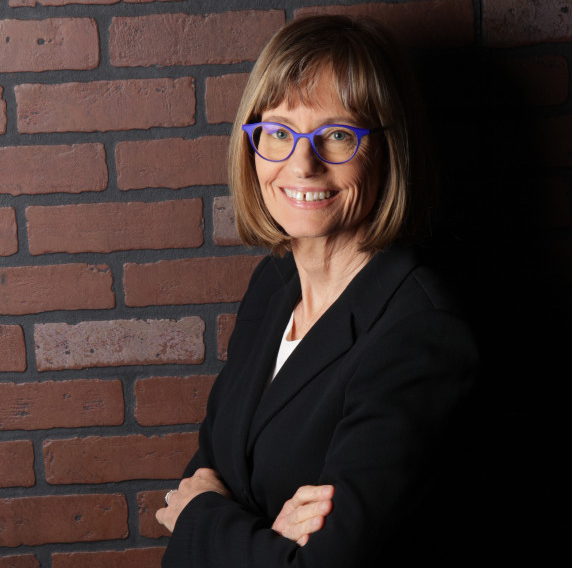Longtime adviser reflects on the HDO ‘magic’
Featuring: Elizabeth Keating, Ph.D.
Professor, Department of Anthropology
Professor, HDO
“Adventurous!”
That’s how Professor Elizabeth Keating, UT faculty member and adviser for the HDO master’s program since 2017, describes the many out-of-the-ordinary graduate students she has met and admired.
“They are unafraid to engage in this path to understanding their approach to a better, more satisfying career,” she said. “It’s so much fun to teach these students and I can’t say enough about how great the program is.”
Benefiting from different backgrounds
A wide variety of students are drawn to the HDO master’s program, including architects, doctors, engineers, administrators, journalists, human resources professionals, restaurant managers, nonprofit leaders and more. Most are already established with many years in their fields, and all are looking for a creative approach beyond typical business principles. That diversity brings value and relevance to the program, she believes. “It’s been a fascinating group of people to work with because they all come together with such different experiences, but with many of the same problems to solve. They realize that better understanding of human relationships will take them farther than more about accounting or management principles right now.” Students returning to college at this stage get the “absolutely breathtaking experience” of being able to read things and think about things with a group of like-minded people who are also very intelligent and accomplished, Keating said. The HDO master’s program provides the tools these students can use to envision change, to implement new strategies and to be innovative. Understanding the human element is key. “Everybody in their jobs ends up working with people ultimately, and you can’t really do anything on your own. You really need to be part of a team. And they are all parts of teams, but they want to make that team function better for everybody and to achieve more and different types of goals,” Keating said.Learning through liberal arts
HDO programs provide graduate students opportunities to view their professions through a liberal arts lens, which some have not been exposed to before. Traditional disciplines including sociology, philosophy, history, political science and communication provide a background for new exploration. “They get to think through these ideas with their professors and with their fellow students and they get to apply the ideas while working through the program, researching, getting a more clear idea about what’s possible, current ideas in the field, what’s been done before and what some of the pitfalls are.” “The magic of the class is that you have a lot of these different perspectives and lots of people can contribute to growing everyone’s understanding.” As an adviser, Keating works with students developing their Capstone projects (similar to a master’s thesis). For example, a few memorable projects:- Global teams and communication – A manager of a large computer company with an international team researched cross-cultural communication, a topic close to Keating’s heart as a professor of linguistics. “Getting people to do things with language, it’s a tricky business. There are situations that cause problems among work groups, especially when you’re talking internationally, because there are very different rituals in different places. The politeness ritual in one place looks awfully impolite in another place. That makes people offended, and then they don’t work well together.” Ultimately the manager was able to help her team understand potential flashpoints and expectations.
- Effective brainstorming – An architect studied creativity and meetings at his firm. His goal was to learn the best approach to encourage brainstorming without stifling anyone’s ideas. He tested the best techniques within his firm.
- Women in engineering – More than one student has looked into why there aren’t more women in engineering. Data shows that women may love engineering, may spend a long time getting an advanced degree and still drop out of careers. The culture of engineering seems to be an issue for many. One student focused on African American women engineers, which gave her even more insight into some of the ways that minorities, whether it’s women or African Americans, have a bigger challenge. She found there may not be enough support or not the right kind of peer or mentoring support.
Ultimately students leave their HDO studies at UT with much more than a piece of paper or a box checked on a career plan. They’ve deeply explored and learned about themselves, their professions and the people around them.
Keating has seen many lifelong connections among cohorts. “They’ve done something really unique together and so that bond is very, very strong. That’s really fun to see. They become very close with each other and very supportive.”

Elizabeth Keating, PhD
Elizabeth Keating, Ph.D., is a linguistic anthropologist who studies culture and communication. She is planning to retire in 2024. Her most recent book is The Essential Questions: Interview Your Family to Uncover Stories and Bridge Generations.
She has taught the HDO Master’s Course: HDO381: Individual Perspectives on the Human Dimensions of Organizations, using another book, co-authored with Professor Sirkka Jarvenpaa, Words Matter: Communicating Effectively in the New Global Office (University of California Press). It uses research from engineers collaborating from four continents to talk about successful communication in today’s technologically-mediated global office.
